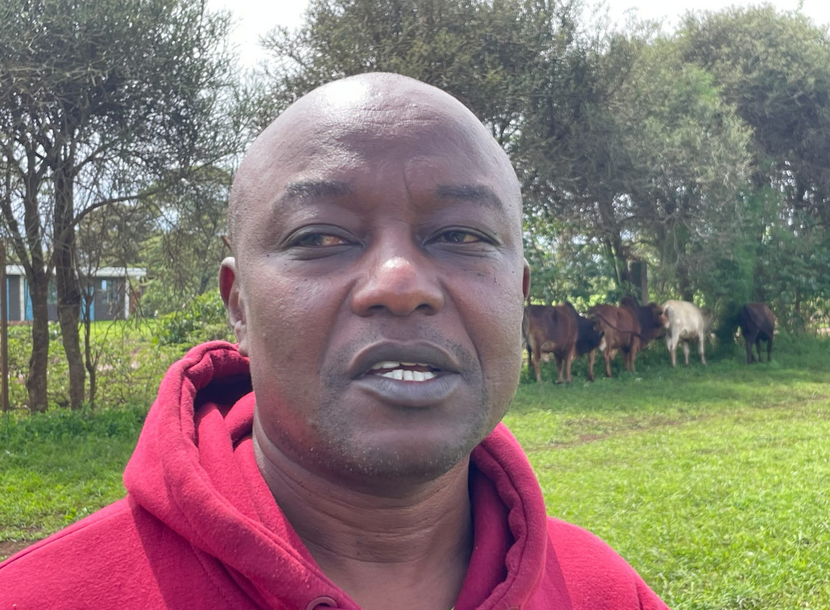

A new initiative aimed at addressing critical environmental and socio-economic challenges in the Loitokitok region of Kajiado County is set to be launched on Tuesday.
The Loitokitok Integrated Conservation and Livelihood
Programme is a transformative, 10-year programme that will be launched by East
Africa Community and Regional Development Cabinet Secretary Askul Moe.
World Wide Fund for Nature Kenya programmes coordinator
Amboseli-Chyulu sub-landscape John Kioko said the initiative seeks to
integrate environmental conservation and livelihood enhancement by fostering
sustainable practices and creating opportunities for economic development
through the enhancement of agricultural and livestock value chains.
Kioko said the programme has a strong focus on capacity
building, eco-tourism, and green technologies.
It aims to foster long-term resilience in the region’s ecosystems and communities.
“The initiative supports key national and local government policies, notably contributing to the Bottom-Up Economic Transformation Agenda (BETA), and aligns with the broader goals of Kenya's Vision 2030, which seeks to promote sustainable development across the country.”
The multi-institutional programme is a collaboration between the Ewaso Ngiro South Development Authority (ENDSA), Kerio Valley Development Authority (KVDA), Water Resources Authority (WRA), World Wide Fund for Nature - Kenya (WWF-Kenya), and the Agricultural and Food Authority.
Additionally, the programme engages a broad range of stakeholders, including National Government Institutions, the County Government of Kajiado, local Members of Parliament, NGOs, and the private sector.
By combining the expertise and resources of various partners, this programme aims to contribute to the achievement of the Sustainable Development Goals (SDGs), particularly SDG 13 (Climate Action), SDG 15 (Life on Land), and SDG 2 (Zero Hunger).
This includes environmental conservation.
The programme has a number of objectives.
It seeks to promote the sustainable management of natural resources, with a focus on the protection of forests, reforestation, wildlife conservation, and biodiversity preservation.
This includes fostering sustainable land management practices and promoting the restoration of degraded ecosystems, especially rangelands.
By developing and expanding key value chains in agriculture, livestock, and eco-tourism, the program aims to increase household incomes and reduce poverty.
Specific activities include enhancing the productivity of local farmers and ranchers, supporting agri-businesses, and promoting tourism opportunities that align with conservation goals.
The programme also addresses the growing threat of climate
change, particularly the recurring droughts that impact communities and
livestock in the region.
Through the construction of water infrastructure—such as water pans, dams, and boreholes—the program seeks to provide reliable water sources for both people and livestock, thereby enhancing the region's resilience to climate shocks.
The programme will facilitate the transfer of sustainable technologies to local communities, empowering them to mitigate and adapt to the effects of climate change.
This includes introducing efficient farming practices, water-saving technologies, and eco-friendly energy solutions to reduce the environmental footprint of local practices.
The programme will support smallholder farmers in enhancing value chains for tomatoes and mangoes through improved production techniques, processing, packaging, and marketing.
It will also see the development of feedlots and fodder production systems aimed at improving livestock productivity, ensuring year-round feed availability, and addressing climate-induced drought impacts.
In the dairy and beef sector, the programme will seek to improve livestock breeds for better milk and beef production through breeding programs, veterinary care, and modern production techniques.
Other initiatives to be supported through the program include the promotion of sustainable beekeeping as a viable alternative income source for local farmers while supporting biodiversity through pollination.
The programme also seeks to enhance the quality of raw hides through improved slaughterhouse practices and leather processing technologies to increase market value and create job opportunities and implement integrated water management solutions, including the development of water harvesting systems, to support agriculture, livestock, and domestic needs, and to ensure equitable water distribution.










